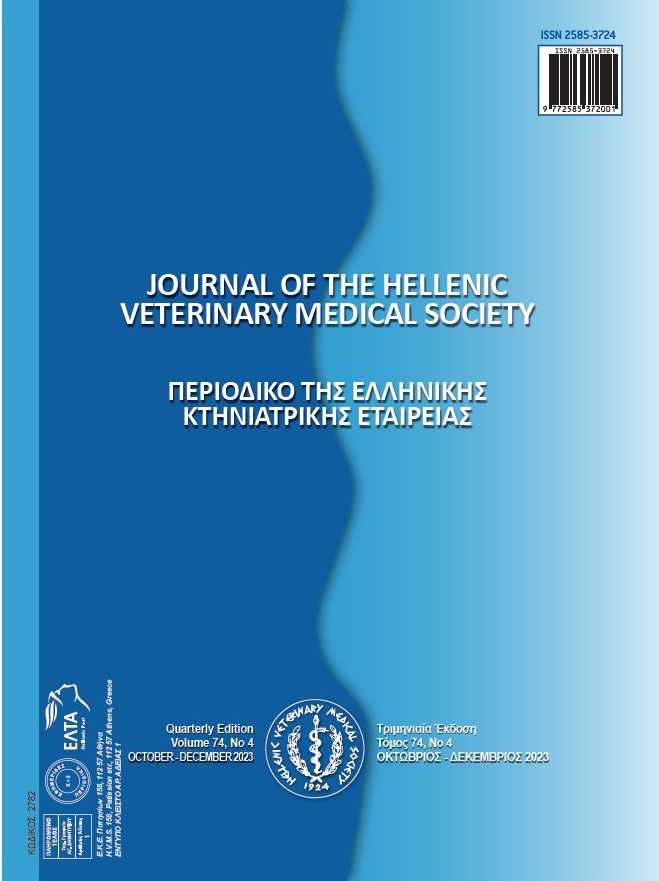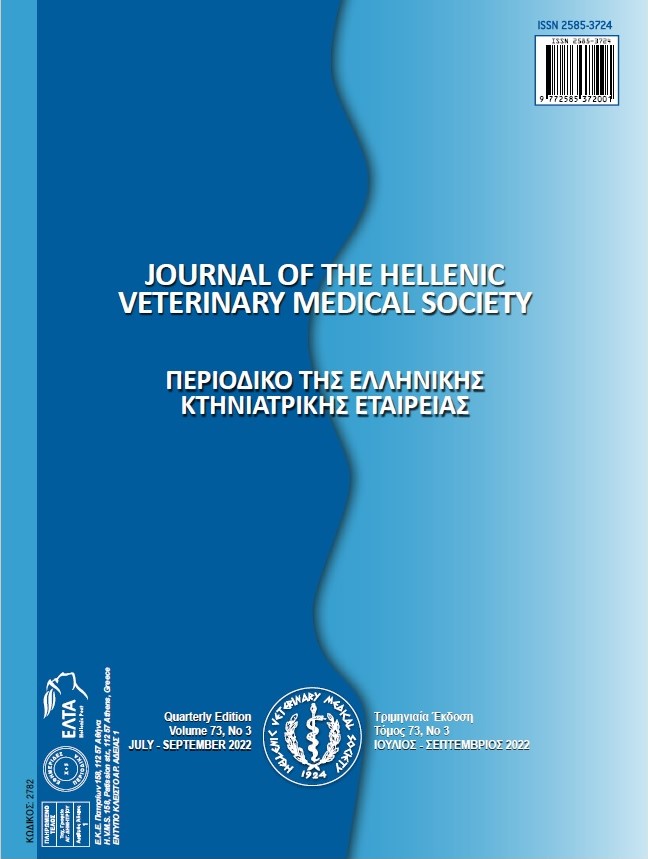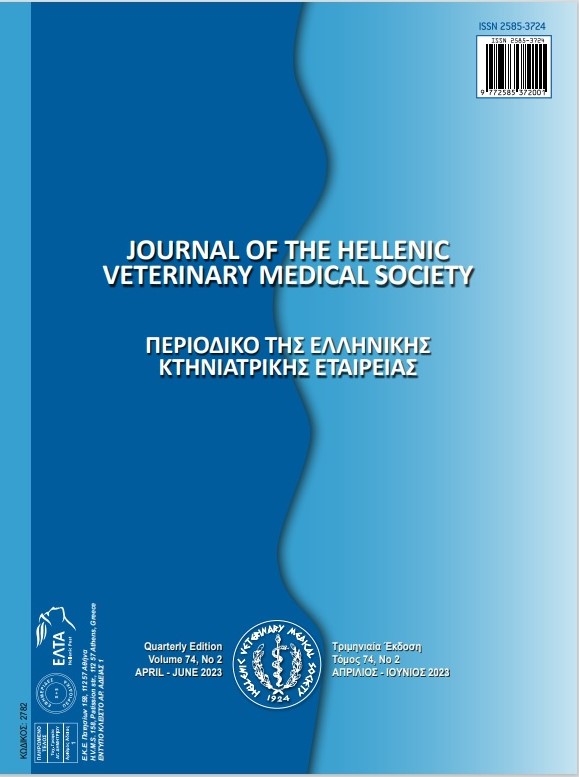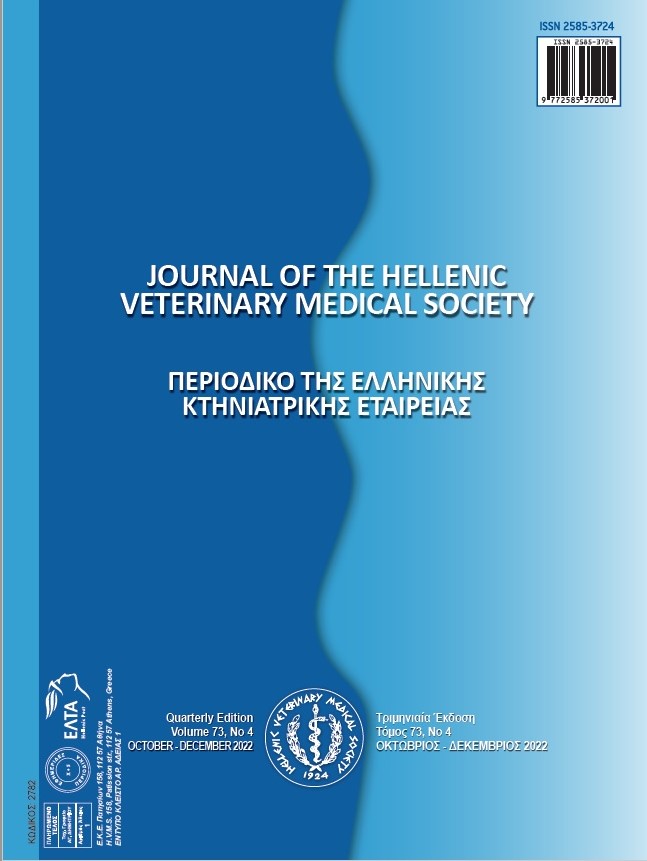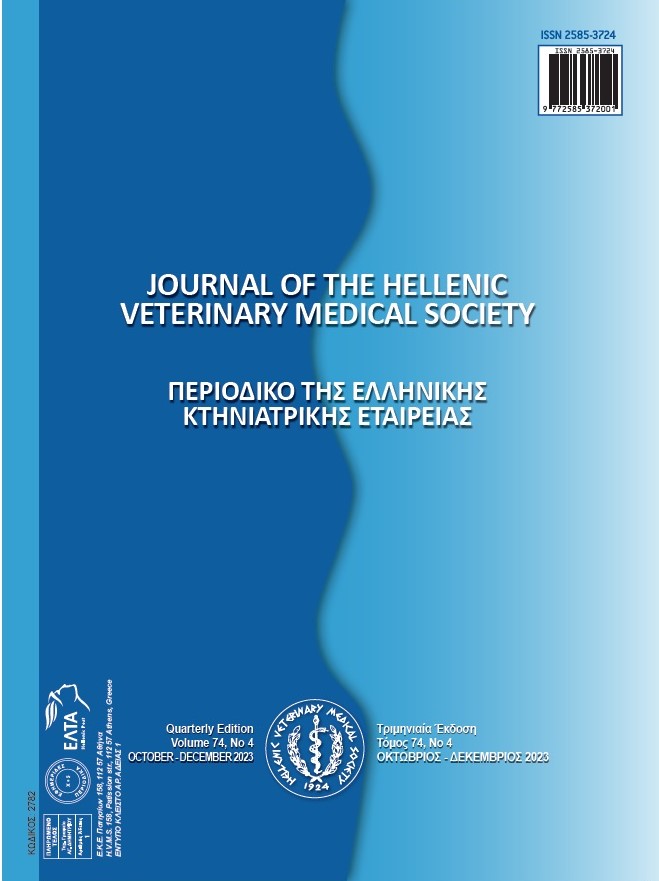Addition of Japanese mint volatile oil (Menthaarvensis) to post weaning Saanen Kids: I. The effects on growth performance, rumen parameters, fecal characteristics and fecal microbiology
Περίληψη
The aim of this study was to evaluate the effect of adding Japanese mint volatile oil (M. Arvensis) to the feed or orally drinking on growth performance, rumen parameters, fecal characteristics and fecal microbiology of Saanen kids. Twenty-four male and female kids 60 ± 5 d age and 11.43 kg body weight (BW) were randomly divided into three groups (n = 8). Japanese mint volatile oil was not added to the control group. In the research, Japanese mint volatile oil was added to the feed at 200 mg/kg level to the first experimental group and given to the second experimental group by drinking it directly. Kids were weighed at the begining and ending of the study. Rumen and fecal samples were collected ending of the study. While pH, NH3N, volatile fatty acid (VFA) and protozoa were examined in rumen content, pH and microorganism population were examined in fecal content. There were no differences (P>0.05) in live weight (LW), live weight gain (LWG), average daily gain (ADG), daily dry matter intake (DMI) and feed conversion ratio (FCR) between the control and experimental groups. There were no differences in the rumen pH, faecal pH, rumen NH3N and faecal score of the control and experimental groups. In the study, there were no significant differences between the control and experimental groups in terms of faecal microorganism population, while salmonella was detected in one of the control group faecal sample. Adding Japanese mint oil to kids caused significant decreases in rumen isobutyric acid (P<0.05), butyric acid (P=0.003), isovaleric acid (P=0.005) and total VFA (P< 0.05) values. It was determined that the use of Japanese mint by adding to the ration in kids caused a significant decrease (P=0.004) in the distribution of entodinium and a significant increase (P≤0.001) in the distribution of epidinium from rumen protozoa. The use of mint oil by drinking and adding to the feed caused a significant difference in the total number of protozoa. A significant increase (P≤0.05) in the total number of protozoa was detected with the addition of Japanese mint oil by drinking. In this study, it was determined that the addition of Japanese mint oil to the kids showed a positive trend on the ADG parameter. Also, the decrease in the number of pathogenic microorganisms E.coli and Salmonella of Japanese mint oil in this study supports the antimicrobial effect of previous studies. In summary, the results of this study show that Japanese mint, which is natural and does not carry residual risk, can contribute to performance and support health criteria in kids after weaning.
Λεπτομέρειες άρθρου
- Πώς να δημιουργήσετε Αναφορές
-
Yeşilbağ, D., Kırmızı, B., Cetin, I., & Cetin, E. (2024). Addition of Japanese mint volatile oil (Menthaarvensis) to post weaning Saanen Kids: I. The effects on growth performance, rumen parameters, fecal characteristics and fecal microbiology. Περιοδικό της Ελληνικής Κτηνιατρικής Εταιρείας, 75(1), 6839–6846. https://doi.org/10.12681/jhvms.32460
- Τεύχος
- Τόμ. 75 Αρ. 1 (2024)
- Ενότητα
- Research Articles

Αυτή η εργασία είναι αδειοδοτημένη υπό το CC Αναφορά Δημιουργού – Μη Εμπορική Χρήση 4.0.
Οι συγγραφείς των άρθρων που δημοσιεύονται στο περιοδικό διατηρούν τα δικαιώματα πνευματικής ιδιοκτησίας επί των άρθρων τους, δίνοντας στο περιοδικό το δικαίωμα της πρώτης δημοσίευσης.
Άρθρα που δημοσιεύονται στο περιοδικό διατίθενται με άδεια Creative Commons 4.0 Non Commercial και σύμφωνα με την άδεια μπορούν να χρησιμοποιούνται ελεύθερα, με αναφορά στο/στη συγγραφέα και στην πρώτη δημοσίευση για μη κερδοσκοπικούς σκοπούς.
Οι συγγραφείς μπορούν να καταθέσουν το άρθρο σε ιδρυματικό ή άλλο αποθετήριο ή/και να το δημοσιεύσουν σε άλλη έκδοση, με υποχρεωτική την αναφορά πρώτης δημοσίευσης στο J Hellenic Vet Med Soc
Οι συγγραφείς ενθαρρύνονται να καταθέσουν σε αποθετήριο ή να δημοσιεύσουν την εργασία τους στο διαδίκτυο πριν ή κατά τη διαδικασία υποβολής και αξιολόγησής της.

